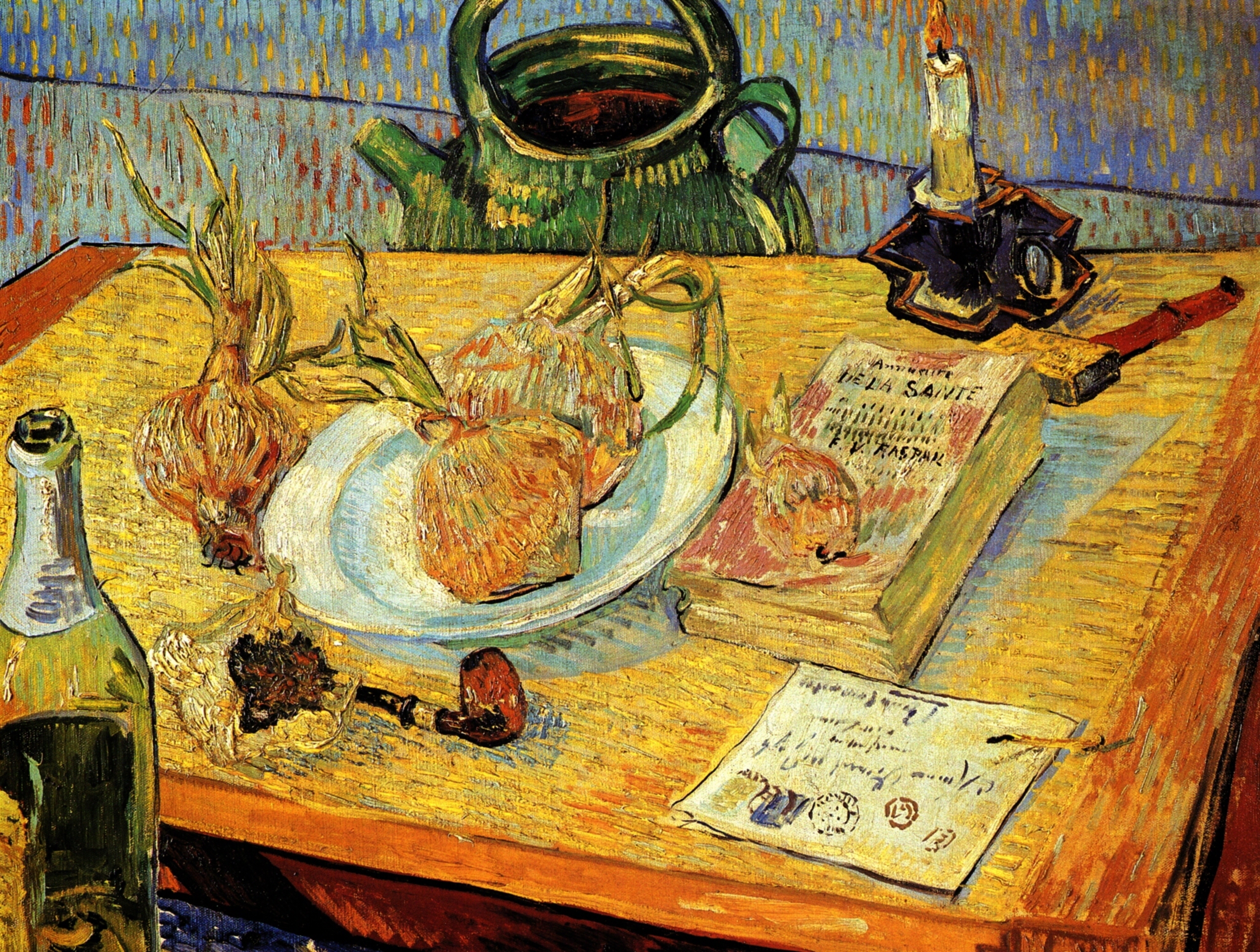Thursday – Thanksgiving
I will not be celebrating my favorite holiday today as I’m in Slovenia teaching a class in the morning (on reader response theory) and attending a talk by Irish author Roddy Doyle this evening. However, a former student of mine (Sanja Struna) will be hosting a Thanksgiving dinner in a week, so I will get to celebrate after all.
Today’s poem pushes against the grain in that it’s not entirely upbeat, which is appropriate given Native Americans’ understandably ambivalent view of the holiday. Joy Harjo, a member of the Mvskoke/Creek nation, writes about her kitchen table, upon which “the gifts of earth are brought, and prepared, set.” The table, however, has seen bad as well as good and Harjo acknowledges it all.
In her account, “babies teethe at the corners” and “scrape their knees under it,” children learn life instructions there, women give birth on it and bodies are laid out upon it.
As the poet’s vision expands, we hear about dire events that can be traced back to this table. Wars have begun here and terrible victories have been celebrated. In other words, when we sit down to our Thanksgiving feast, we should contemplate life in all of its dimensions.
As we do so, we realize that life is bigger than any single event and can remind ourselves what it means to be human. We don’t give thanks that we have had sorrows–I dearly wish that my oldest son was still alive–but we can be grateful at how even sadness has deepened the rich texture of our existence. Because there has been crying as well as laughing, we can savor all the more the sweet bites that we are afforded.
If the world ends while we are all gathered around this table, is there any other place we would rather be? I’m sorry that I am not at my own family’s table this Thanksgiving, but I will be there in spirit.
Lift a glass for me.
Perhaps the World Ends Here
By Joy Harjo
The world begins at a kitchen table. No matter what, we must eat to live.
The gifts of earth are brought and prepared, set on the table. So it has been since creation, and it will go on.
We chase chickens or dogs away from it. Babies teethe at the corners. They scrape their knees under it.
It is here that children are given instructions on what it means to be human. We make men at it, we make women.
At this table we gossip, recall enemies and the ghosts of lovers.
Our dreams drink coffee with us as they put their arms around our children. They laugh with us at our poor falling-down selves and as we put ourselves back together once again at the table.
This table has been a house in the rain, an umbrella in the sun.
Wars have begun and ended at this table. It is a place to hide in the shadow of terror. A place to celebrate the terrible victory.
We have given birth on this table, and have prepared our parents for burial here.
At this table we sing with joy, with sorrow. We pray of suffering and remorse. We give thanks.
Perhaps the world will end at the kitchen table, while we are laughing and crying, eating of the last sweet bite.


